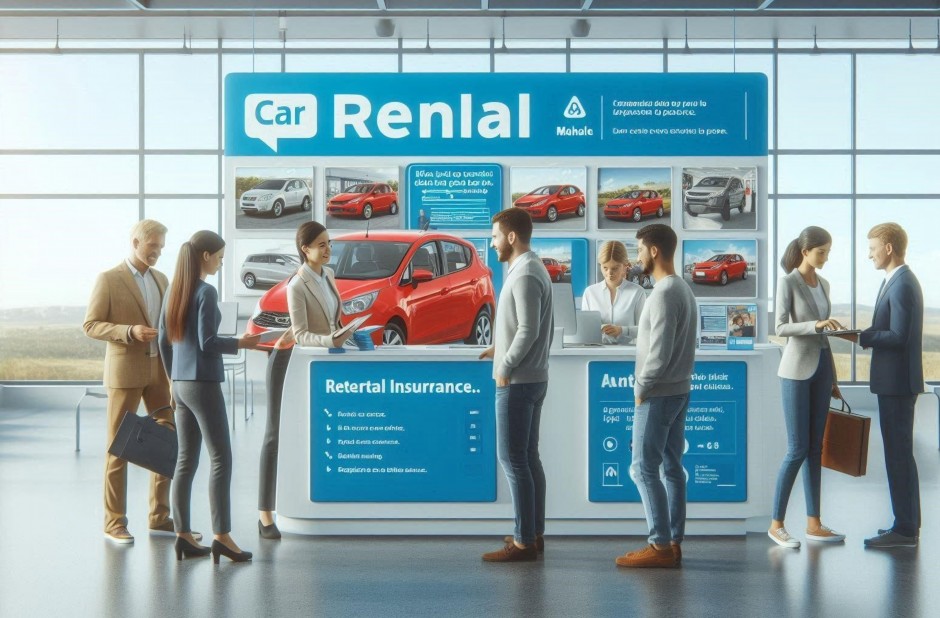
Renting a car should be a straightforward process, but many travelers find themselves paying significantly more than expected due to questionable insurance practices. Car rental companies often rely on customers' lack of knowledge about insurance coverage to sell unnecessary or overpriced policies. Understanding these tactics can save you hundreds of dollars on your next rental.
Why Car Rental Insurance Scams Are So Common
Car rental companies operate on thin profit margins on the basic rental fees. To compensate, they push additional products and services, with insurance being the most profitable. Many rental agents work on commission, incentivizing them to sell you coverage you may not need. According to industry reports, insurance and other add-ons can account for up to 30% of a rental company's revenue.
The pressure tactics and confusing language at the rental counter often leave customers making hasty decisions. This article will help you identify common insurance scams and prepare you to make informed choices during your next rental experience.
Most Common Car Rental Insurance Scams
The "Your Insurance Doesn't Cover This" Scam
Rental agents often claim that your personal auto insurance or credit card coverage is insufficient. They might say things like "your policy doesn't cover rental cars" or "your coverage has too many limitations to protect you fully." In reality, many personal auto insurance policies extend to rental cars, and premium credit cards offer comprehensive rental coverage.
To avoid this scam:
- Call your insurance provider before your trip to verify your coverage for rentals
- Contact your credit card company to understand their rental car protection benefits
- Get coverage details in writing to show the agent if necessary
- Stand firm when pressured and request time to make a decision
The "Mandatory Coverage" Deception
Some rental agents claim that certain insurance products are mandatory when they're actually optional. They might bundle different types of coverage together as if they come as a package, making it difficult to decline individual components.
In most countries, the only truly mandatory coverage is the basic liability insurance, which is typically included in the quoted rental price. Everything else—collision damage waiver (CDW), personal accident insurance, personal effects coverage—is optional.
To protect yourself:
- Research local laws regarding minimum required insurance before traveling
- Ask for a breakdown of each insurance product being offered
- Request to see the terms in writing that state a particular coverage is "mandatory"
- Be prepared to walk away if the agent insists on unnecessary coverage

The "Damage Was Already There" Scheme
This common scam involves the rental company claiming you caused damage that was already present when you returned the vehicle. Without proper documentation, you could be charged for repairs that weren't your responsibility.
To avoid falling victim:
- Thoroughly inspect the vehicle before driving off the lot
- Document all existing damage with photos or videos, including timestamps
- Ensure all damage is noted on the rental agreement
- Get a signed copy of the damage report
- Take photos/videos when returning the vehicle
- Request a signed return receipt stating the car was returned undamaged
The "Premium Coverage" Upsell
Rental companies often push their highest-tier insurance products by creating fear about potential scenarios. They might emphasize rare accidents or extreme weather conditions to convince you that basic coverage isn't enough.
Standard collision and liability coverage is usually sufficient for most travelers. Premium packages often include benefits you're unlikely to need or that duplicate protection you already have.
The Hidden Deductible Trap
Some rental companies advertise "full coverage" insurance but fail to mention high deductibles that apply before the coverage kicks in. You might believe you're fully protected, only to discover a significant out-of-pocket expense when filing a claim.
Always ask specifically about deductibles and get the answer in writing. Some companies offer "deductible waivers" at an additional cost, but these are often unnecessary if your personal insurance or credit card already provides similar protection.

International Rental Insurance Scams
The "Local Requirements" Fabrication
When renting cars abroad, agents may claim that local laws require specific insurance products that are actually optional. They count on tourists being unfamiliar with local regulations.
Research insurance requirements for your destination country before traveling. Print relevant information to show the agent if necessary. In most countries, third-party liability insurance is legally required and included in the base rate, while additional coverages remain optional.
Currency Conversion Schemes
International rentals sometimes involve deceptive currency conversion practices for insurance charges. The rental company might use unfavorable exchange rates or add hidden conversion fees when processing insurance payments.
Always opt to pay in the local currency rather than your home currency. Review the final bill carefully before signing and challenge any discrepancies immediately.
How to Protect Yourself from Rental Insurance Scams
Before Your Trip
- Research your existing coverage (personal auto insurance, credit card benefits)
- Read reviews of rental companies at your destination
- Book directly with reputable companies when possible
- Take screenshots of online quotes that specify what's included
- Consider purchasing insurance from a third-party provider for better rates
At the Rental Counter
- Don't rush through the paperwork
- Ask for clear explanations of all charges
- Get all promises in writing
- Cross out or initial any declined coverage options
- Thoroughly document the vehicle's condition
- Be prepared to walk away if pressured
When Returning the Vehicle
- Return during business hours when possible
- Request a final inspection in your presence
- Get a signed receipt confirming no damage
- Keep all documentation for at least six months
- Check your credit card for unexpected charges in the weeks following

What to Do If You've Been Scammed
If you discover you've been charged for unwanted insurance or hit with unjustified damage claims, act quickly:
- Contact the rental company's customer service department immediately
- Provide all documentation supporting your case
- If unsatisfied, dispute the charge with your credit card company
- File complaints with consumer protection agencies
- Share your experience on review sites to warn others
- Consider small claims court for significant amounts
The car rental industry relies on information asymmetry to profit from unnecessary insurance sales. By educating yourself before your trip and standing firm at the rental counter, you can avoid these common scams and save significant money on your travels. Remember that preparation is your best defense against deceptive insurance practices.
